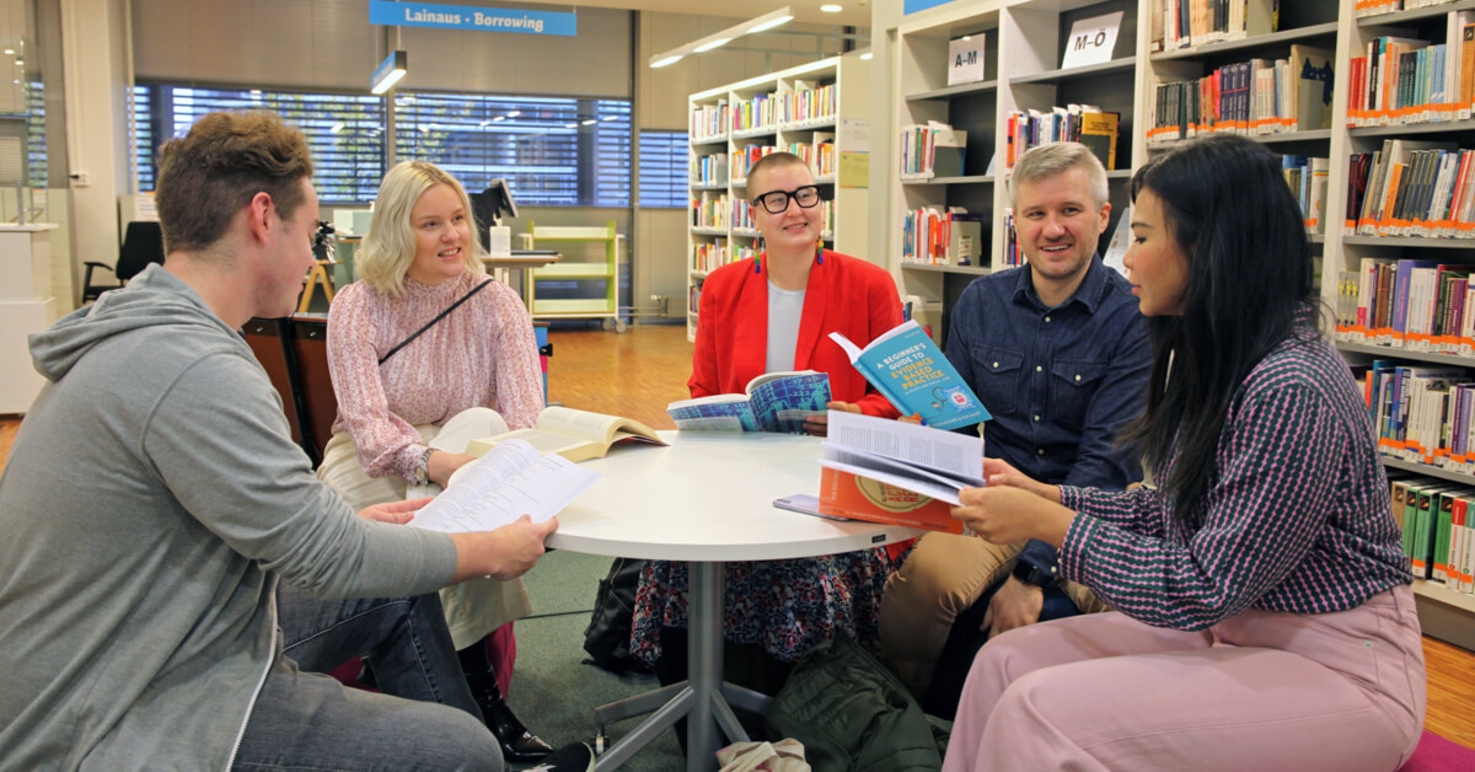Master's thesis: Finnish social welfare professionals’ culturally sensitive approach to intercultural communication with immigrants
Velumma Valtari's thesis suggests that multicultural training and education for social welfare professionals and students should be offered in Finland.

Velumma Valtari's thesis Immigrant integration and intercultural communication practices of social welfare professionals in Finland is a qualitative research that conducted individual, thematic interviews with three social welfare professionals in Finland, who work with immigrant integration. The aim was to explore the experiences and challenges faced by social welfare professionals in Finland, who work with immigration integration, when practicing intercultural communication.
The intention to study the subject came from understanding that immigration raises a diverse set of issues and challenges to the hosting nations related to, among others, promoting the integration, inclusion, participation, and independence of the immigrants. Social welfare professionals’ intercultural communication competence is a relevant subject to study because they (social counselors, social workers, social instructors, etc.) are a crucial part of the immigrant integration process and practice a fundamentally communicative profession.
Besides interviews to collect data and thematic data analysis, a literature search supported the construction of a theoretical framework on the main topics addressed and used as background for this study, including cultural competence and social work, intercultural communication, and immigrant integration in Finland.
Several themes identified in the results
The results identified six themes present in the professionals’ practice that represent common intercultural communication-related occurrences or obstacles to be overcome. The themes are:
1. The advantage of sharing cultural identity or background with the service user,
2. The relevance of Informing immigrants about the Finnish integration system,
3. The impact of the fragile mental health condition of the service users on intercultural communication,
4. Professional approach to intercultural communication,
5. Self-evaluation of professional performance when starting in the field versus after acquiring experience in the field,
6. The importance of establishing trust between professionals and service user.
The results reflect the professional’s strategies in dealing with those difficulties and the skills behind them. Likewise, the results demonstrated the reasoning when interpreting typical occurrences that take place when communicating with people with different cultural backgrounds and identities. Communicating in a multicultural setting is a practice expected to face setbacks. With the thematic data analysis of the interview transcripts, it was possible to conclude that professionals identify the fragile mental health condition of the service users and the lack of cultural background or identity similarity between them as examples of situations that hinders intercultural communication events. The most common occurrences were described to be the constant exchange of information about the Finnish integration system and how relevant it is in supporting users’ empowerment. Also, the ever-present need to build and maintain with service users a relationship that is based on trust.
While the thesis did not intend to evaluate professionals’ strategies and competencies, the interviews and subsequent analysis revealed the social welfare professionals’ range of culturally sensitive approaches when practicing intercultural communication and their tendency to evaluate their performances and cultural competence abilities in association with a positive or negative communication outcome. A practice whose result is affected by time and experience in the field.
Multicultural training should be offered
The thesis suggests that multicultural training and education for social welfare professionals and students should be offered in Finland. In addition, cross-sectoral cooperation is recommended, which is identified as a beneficial tool to ensure a seamless provision of social welfare services. Finally, the author encourages having immigrants participate and cooperate with the decision-making process of public policies and services designed for them.
This thesis is beneficial, on a larger scale, considering that immigration challenges nations to provide effective integration services that can only be possible with well-equipped social welfare professionals and institutions. Whereas locally, it might provide a helpful and practical framework for social welfare workers and institutions in Finland dealing with immigrant integration, to identify and address challenging situations in intercultural communication practices in an increasingly multicultural Finland.
Read the Master's thesis in Theseus.
Further information:
Velumma Valtari
Master’s degree programme in Global Health and crisis management
velumma.valtari@student.laurea.fi